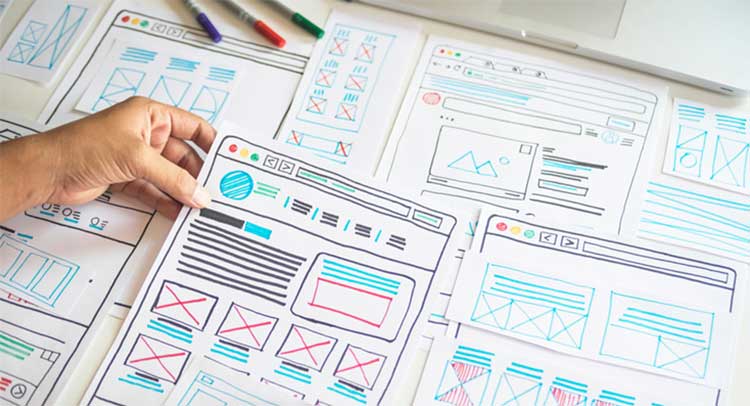What Is a UX Designer – And Why Do You Need One?

If your business is at all involved in the development of new products and applications, you’ve probably heard the term user experience, or UX, designer at some point during the last few years. In fact, you’ve probably been told that your company needs a UX designer if you want to create more customer engagement and stand out from the competition.
But what exactly is a UX designer? And why do you need one?
The Foundation of Customer Experience
Usually, when we hear the term “designer,” we think of graphic or product designers, the individuals who create how a product looks or functions. While these designers are still important, the user experience designer takes the aspects of look and function to create the experience that a user has when using the product, usually an application or website. While it’s impossible to formally create a specific experience, as there are too many uncontrolled factors that influence any one person’s individual experience, a UX designer’s responsibility is to control as many factors as possible to determine what a user’s experience should be when using the product.
Although specific projects vary, most UX designers use a combination of customer research, business analysis, testing and wire-framing to develop a user experience baseline. Their work also requires a certain amount of psychological knowledge to predict how users will use the application, as well as project management skills. The ultimate goal is to make the experience of using a product enjoyable and efficient, while also ensuring that the product itself is both usable and useful.
Key Responsibilities of a UX Designer
A UX designer is involved with the development of applications at every step of the process, from initial idea to launch to updates. Again, while an individual’s specific responsibilities vary by project and company, most are involved with at least some of the following activities.
Research. Before any design takes place, UX designers conduct research. They learn as much as possible about what already exists (competitive research), their customers and identify opportunities and pain points to address. This research informs the rest of the development process, including the creation of buyer personas and the selection of features for the app.
Persona Development. UX designers are heavily involved with the creation of buyer personas and scenarios about what they might do with the app.
Information Architecture Development. Once the UX designers know who their users are and what they want to do, they identify the content and processes that are needed and outline the information architecture via paper prototypes.
Wire-Framing and Testing. Once the basic architecture is determined, UX designers then go through the process of wire-framing the app and testing various iterations to determine the design and experience that resonates most with users. This typically begins with paper drawings and moves into simple interactive designs before finally onto the fully rendered designs that show test subjects what the final design will actually look like.
Often during the wire-framing process, UX designers work closely with user interface or graphic designers to determine the visual aspects of the app, including the colors, typography, and imagery. By the time the mockups reach the usability testing stage, they should be as close to the final version as possible.
Ongoing Testing and Refinement. A UX designer’s work isn’t done when the product goes to market. Because technology is constantly changing, and things don’t always go as expected, a UX designer must use analytical data, customer feedback and their knowledge of evolving industries to make continual changes and updates to their products.
Hiring a UX Designer
Although the title of UX Designer is a relatively new one, growth in this field is expected to be healthy, with 18 percent growth in open positions in the next 10 years. Companies are looking for people who can help them gain a competitive advantage over the competition, and a UX designer is often part of this strategy. As you look to add one to your staff, look for someone with design and computer science skills, including skills in UX. Many colleges are adding UX programs, including online master’s programs in Ohio, making it easier to find individuals with the necessary combination of hard skills in these areas, as well as the soft skills of communication, problem-solving and teamwork that are vital to successful designs.
Above all, though, businesses need UX designers who can help bring value to their products and support customer experiences that keep people coming back again and again.
Have you read?
India Rich List For 2018: Richest Indian Billionaires.
China Rich List For 2018: Richest Chinese Billionaires.
Taiwan Rich List For 2018: Richest Taiwanese Billionaires.
Bring the best of the CEOWORLD magazine's global journalism to audiences in the United States and around the world. - Add CEOWORLD magazine to your Google News feed.
Follow CEOWORLD magazine headlines on: Google News, LinkedIn, Twitter, and Facebook.
Copyright 2025 The CEOWORLD magazine. All rights reserved. This material (and any extract from it) must not be copied, redistributed or placed on any website, without CEOWORLD magazine' prior written consent. For media queries, please contact: info@ceoworld.biz








